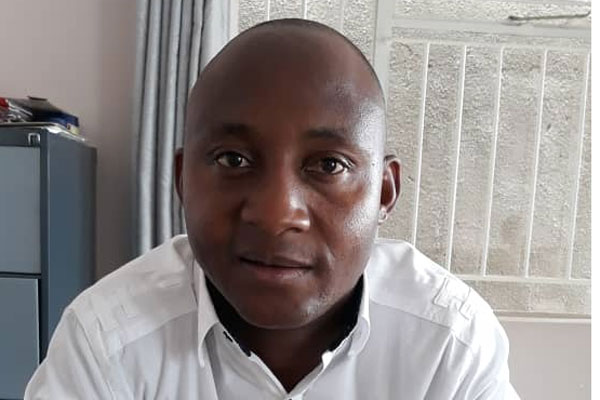
health talk:with Dr Johannes Marisa
This week I would like to take you through one condition that affects a lot of people mainly in the subtropical and tropical regions. Bilharzia is a parasitic disease with the parasite mainly found in Africa, but also in parts of South America, the Caribbean, the Middle East and Asia. In 2015, bilharzia affected an estimated 252 million people globally, according to the World Health Organisation. Between 4 500 and 200 000 people die every year from this disease. 10% of the global population lives where the disease is very common, meaning the risk is very high. While many people usually want to watch for blood in the urine for them to be convinced that they have bilharzia, that is not correct as bilharzia can remain asymptomatic for long with damage to organs such as the bladder, kidneys and liver.
How does one get bilharzia?
The worms that cause bilharzia live in fresh water such as ponds, lakes, rivers, reservoirs, and canals. Showers that take unfiltered water directly from lakes or rivers may also spread the infection, but the worms are not found in the sea or oceans because of the saltness of the water, chlorinated swimming pools and properly treated water supplies. This calls for extra caution when one is going to be in contact with the above stated waters. Infection comes when you come into contact with contaminated water, for example, when paddling, swimming or washing. We used to swim in rivers during our childhood days not even noticing this serious infection. How lucky are we to be alive to today.
After a few weeks, some worms start to lay eggs. Some eggs remain inside the body and are attacked by the immune system, while others are passed through the urine or stool. Without treatment, the worms can keep laying eggs for several years.
Symptoms of bilharzia
Many people do not have any even after months or years of infection. However, some people can get small, itchy red bumps on the skin for a few days where the worms burrowed in. After a few weeks, some will develop the following:
lA high temperature.
- Chamisa under fire over US$120K donation
- Mavhunga puts DeMbare into Chibuku quarterfinals
- Pension funds bet on Cabora Bassa oilfields
- Councils defy govt fire tender directive
Keep Reading
lAn itchy, red, blotchy and raised rash.
lA cough.
lDiarrhoea.
lMuscle and joint pain.
lAbdominal pains.
lGeneral sense of feeling unwell.
These symptoms are part of acute bilharzia or schistosomiasis and usually get better by themselves within a few weeks. Upon suspicion of bilharzia, please get early treatment.
There are long-term problems that are caused by bilharzia. These problems arise because the eggs would have travelled to the organs. This forms part of Chronic Schistosomiasis. An infection in the:
lDigestive system can cause blood loss with resultant anaemia, abdominal pains and swelling, diarrhoea or blood in your stool. A lot of patients have presented with non-remitting epigastric pains often confused with Peptic Ulcer Disease or Gastritis. Be alert about bilharzia on long-standing epigastric pains.
lUrinary system can cause irritation of the bladder, pain when passing urine, frequent need to pass urine or blood in the urine.
lHeart and lungs can cause a persistent cough, wheezing, shortness of breath and coughing up blood. Quite often patients and clinicians do not consider bilharzia as a cause. Just be on the look out!
lNervous system or brain can cause seizures, headaches, weakness or numbness in your legs or dizziness.
NB: Without treatment, the affected organs can become permanently damaged. You have high risk of pathologies like cancer of the bladder, Portal hypertension with possibilities of bleeding varices.
Prevention of bilharzia (Schistosomiasis)
There are areas that are marked risky areas for bilharzia. When visiting them:
lAvoid paddling, swimming or washing in fresh water. Use chlorinated water.
lBoil or filter water before drinking as parasites can burrow into your lips or mouth.
lDo not rely on assurances from hotels or tourists that a particular water source is safe as this may be grossly untrue. Know your risk status. Investigations
Upon suspicion of bilharzia, do not delay to seek medical assistance. Some tests are quite simple and they are not expensive at all. The following can be done: Urine tests: You can detect eggs in the urine. Blood can also be detected in the event of haematuria.
Stool analysis: Check for occult blood, eggs in the stool.
Blood tests: Blood for bilharzia fluorescent antigen tests.
Endoscopy: Endoscopy for Esophageal varices.
Ultrasound scan of the liver and spleen: Check for early peri-portal fibrosis, hepatomegaly or ascites.
Treatment
Treatment is usually very successful with an affordable drug called Praziquantel. The drug kills the worms and usually taken as one-off dose. Get your clinician to prescribe for you. Do not wait for complications to come.
Till next week!
lDr Johannes Marisa is a medical practitioner, public health expert and educationist who can be contacted on [email protected].











